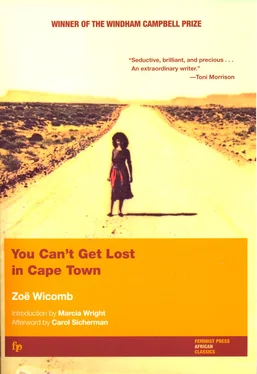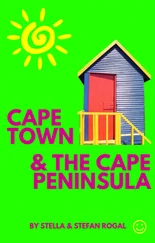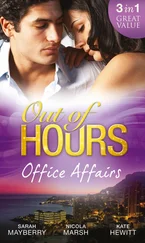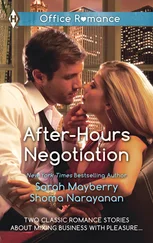Aunt Nettie bustles in with the duster.
‘Unbelievable all this dust; how it gets in I’ll never know. I don’t know why your father doesn’t move somewhere cool where there’s also grass.’
She dusts well, with a practised hand — that is, if the criteria for dusting are indeed speed and agility. Her right wrist flicks the duster of dyed ostrich feathers across surfaces, the left hand moving simultaneously, lifting, before the duster flicks, and then replacing ornaments. Feathers flutter across the glazed faces of Jesus, the Queen Mother in her youth, Oupa Shenton and the picture of an English thatched cottage in the Karroo headed with the flourished scroll of Home Sweet Home. There is no hesitation in her hand. She removes dust just as she has removed from her memory the early years as a servant when she learned to dust with speed. Not that she would ever lose sight of those attributes that lifted her out of the madam’s kitchen, the pale skin and smooth wavy hair that won her a teacher for a husband.
Aunt Nettie caresses her hair with her right hand as she passes with the duster into the bedroom. What will I do next? If I were to follow her, I’d land back on the stoep where they sit in the cooling afternoon.
‘I think,’ I shout after her, ‘I’ll go down to the river again.’
‘Yes Meisie,’ she agrees, ‘and then come and rest with us on the stoep. The wind is lying down and soon it’ll be lovely outside.’
I sprint past the others and Father shouts, ‘Be careful of puff adders. They often come out when the wind drops.’
What nonsense! He did not stumble over the words. He has, after all, said it before. No doubt he will say it again. Or fabricate some other dangers: lions in the veld, man-eating plants, and perhaps it is not awkwardness at all, not simply a desire to drop sounds into the great silence between us. It is the father’s assertion that he knows best.
Their words, all their words, buzz like a drove of persistent gnats about my ears. I no longer have any desire to find the gorra. I have done with sentimental nonsense about water spirits. They have long since been choked to death. The fissure of the river offers mere escape.
Ignoring the path, I scramble down the bank and remain sitting where the sliding earth comes to rest. Before me, between two trickles of water, a mule brays. It struggles in what must be a stretch of quicksand. Transformed by fear its ears alert into quivering conductors of energy. With a lashing movement of the ears, the bray stretches into an eerie whistle. It balances on its hind legs like an ill-trained circus animal, the front raised, the belly flashing white as it staggers in a grotesque dance. When the hind legs plummet deep into the sand, the front drops in search of equilibrium. Then, holding its head high, the animal remains quite still as it sinks.
Birds dart and swoop through the pliant Jan Twakkie branches, and a donkey stirs from its sleep, braying.
He did not say, ‘Beware of the quicksand.’ Not that I would ever tell what I have seen in the river today.
The papery panicles of bougainvillea rustle in an unexpected play of breeze. From the top of the whitewashed wall it tumbles, armfuls of exuberant purple blossom. And below, the group of people stir, shift from one buttock to another, shake an ankle or ease a shoulder before settling back into a sprawling cluster of bodies. Except for the faces, turned to meet the scrunch of my shoes on the gravel.
I pull an ambiguous face so that it can be seen as either greeting or grimace. This is after all a doctor’s surgery and I could well be in pain. I am abjectly grateful for the response, which I take in with a careless glance. Some purse their lips but nod, others mutter or grunt their greeting and smiling young child pipes a clear, ‘Môre Antie’ at me.
I hesitate. Father’s words repeat in my ears. ‘Oh you’ll find it very different now. It’s not the old business of waiting in the yard; there’s even a waiting room for us now with a nice clean water lavatory. Not that these Hotnos know how to use it, but ja man, I think you’ll find the Boers quite civilised now.’
Why are they sitting outside in the yard? I move past the group to the open door at the end of the wall. With one foot on the raised threshold I crane my neck into the room. The walls are a brooding eggshell. Above a row of empty chairs a Tretchikoff Weeping Rose leans recklessly out of a slender glass to admire her new-born tear, perfect in plastic rotundity. Artfully the blue tint deepens into the parent blue of the plastic frame. My shoe scours the threshold in hesitation and my eyes rest on the smooth primrose crimplene suit of a woman motionless in her chair. Her hair flicks up above her ears in an iron-induced curl that will never bounce in the breeze, and she stares at the framed picture of a woman in yellow on the opposite wall. Her dress is a darker yellow, sunnier, and her hair, the colour of ripe corn, flies away in fear of being eaten by a heifer with amorous eyes. Has she seen me? She reverses the nylon-clad legs crossed at the ankles and her right hand starts to move up and down as she beats off the heat. Below her gaze a man studies the smoke ring he blows into the heat. A large briefcase stands clamped between his shoes. Under his trousers his calves bulge with the effort.
The floor is a highly polished parquet in which blurred reflections shudder portentously and I no longer care. It is in any case absurd to pretend that I have assumed this as my position for waiting. I turn and meet the thousand eyes of those squatting in the yard. They have been watching. They register the tension of the moment by shifting and scratching as people do who ease the discomfort of waiting. I settle on my haunches against the wall and open my bag for a book but cannot bring myself to haul it up. Such a display of literacy would be indecent. Instead I draw up a paper handkerchief and ostentatiously blow my nose.
A child starts whimpering and tugs at its mother’s skirt but the mother stares resolutely before her, tracing with her eyes the untrammelled path of a red ant. A large woman in a blanket reaches over to the child. ‘No, no,’ her voice lulls, ‘it’s too hot to cry. You’ll scare away the breeze.’ But the breeze has already gone. A whimsical movement of air in a day so hot and still that it dropped in shame. Only the bougainvillea still whispers its fulsomeness as the blossoms settle into place.
An old man coughs and coughs, clutching at his chest with both hands. Eeeh, he wheezes, and Eeeh, a chorus of voices sigh in response, lifting him high so that his chest loosens and his head nods mechanically until the next bout of coughing.
Under Father’s arm a Rhode Island Red hen squawked, her feathers fluffed with anxiety, her tilted head pressed against his chest. A darning needle gleamed in his right hand.
‘Won’t it hurt?’ I asked, wincing. The orange eyes screamed a silent terror.
‘Yes, but she’ll feel so much better. You get to know the symptoms and it’s just a question of picking off the horny growth at the tip of the tongue — kuikenpiep we call it — you just remove it and pour salt on the wound to disinfect and she’ll be right as rain within a day. Only the females tend. ’ but his words were gobbled up by the hideous cry of the bird whose feathers turned to foam as she raged to escape.
‘No man,’ he reverted to my condition, ‘you must see Dr van Zyl about that pain in your chest. A clever chap that van Zyl. He got you through rheumatic fever when you were only five or six. Then he was only a young man, fresh from school. Do you remember?’
I did. I remembered the silence, the half light of drawn curtains and the sunlight crowding into the sateen pattern. Diamonds drifting into curlicues lifted with light from the dull pink of the fabric. Outside the chickens quarrelled or announced their eggs listlessly in the heat. On the bed like a stove, the heat pressed and seared my joints and Mamma dabbed with spirit lotion, cool as the voice of Jesus. Then the doctor came with creaking sandals and hairy legs.
Читать дальше












